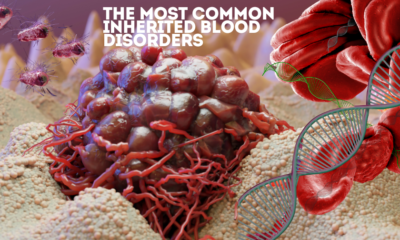Medical
Immunotherapy: The Future of Cancer Treatment

Immunotherapy revolutionizes cancer treatment by harnessing the body’s immune system to recognize, attack, and eliminate cancer cells. This transformative approach has shown immense promise, offering new hope to patients, particularly those with cancers that have been resistant to traditional treatments like chemotherapy and radiation.
What Is Immunotherapy?
Immunotherapy is a form of cancer treatment designed to boost or restore the immune system’s ability to fight cancer. Unlike conventional therapies, which target cancer cells directly, immunotherapy focuses on empowering the body’s immune system to identify and destroy malignant cells. This approach includes several types, such as immune checkpoint inhibitors, CAR T-cell therapy, cancer vaccines, and cytokine therapy.
Checkpoint Inhibitors are perhaps the most well-known, blocking proteins that prevent immune cells (T-cells) from attacking cancer. Examples include drugs targeting PD-1/PD-L1 and CTLA-4 pathways, which have been particularly effective against cancers like melanoma and non-small cell lung cancer.
CAR T-cell Therapy, another significant innovation, involves genetically engineering a patient’s T-cells to better recognize and attack cancer cells. This therapy has been especially successful in treating certain types of blood cancers, such as leukemia and lymphoma.
The Impact and Success of Immunotherapy
Immunotherapy has provided remarkable outcomes, especially in cases where traditional treatments failed. The introduction of immune checkpoint inhibitors in melanoma treatment has dramatically improved survival rates. For example, studies have shown that checkpoint inhibitors can provide long-term remission in metastatic melanoma, something that was rarely possible with chemotherapy alone.
Moreover, CAR T-cell therapy has yielded impressive results in hematological malignancies. According to a study by the American Cancer Society, patients with certain types of leukemia and lymphoma who underwent CAR T-cell therapy achieved remission rates of 70-90%.
Additionally, immunotherapy offers a more personalized treatment approach. By analyzing the genetic makeup of both the patient and the tumor, clinicians can tailor therapies to the individual’s specific cancer, enhancing the chances of success.
Current Challenges
Despite its promise, immunotherapy is not without challenges. Not all patients respond equally to these treatments. For example, immune checkpoint inhibitors are effective in a minority of patients, and many tumors exhibit resistance to immunotherapy. Additionally, immunotherapy can trigger severe side effects, including inflammation and autoimmune-like responses, where the immune system attacks healthy tissues.
Moreover, cost remains a significant barrier. CAR T-cell therapies, for instance, can cost hundreds of thousands of dollars, making it inaccessible to many patients without robust insurance coverage. There is also a logistical challenge with therapies like CAR T-cell, which requires complex laboratory processes, including genetic engineering of T-cells.
The Future of Immunotherapy
The future of immunotherapy lies in overcoming these challenges through combination therapies, advanced diagnostics, and wider accessibility. Combination therapies are one of the most promising approaches. Research is currently focused on combining immunotherapy with other treatments, such as chemotherapy, radiation, and targeted therapies, to enhance.
Researchers are also working to understand the tumor microenvironment better and how it can be manipulated to make immunotherapies more effective. The James P. Allison Institute at MD Anderson Cancer Center, for example, is pioneering efforts to study how different immune cell subsets can be targeted to develop more effective treatments.
Another critical area of research is the development of new biomarkers that can predict which patients will respond to immunotherapy. With advancements in genetic testing and artificial intelligence, doctors can now analyze a patient’s tumor more precisely, potentially leading to more personalized and effective treatment regimens.
Furthermore, researchers are exploring novel forms of immunotherapy, such as bispecific T-cell engagers (BiTEs), which are engineered antibodies that direct the immune system to target cancer cells more efficiently. These therapies offer hope for patients with solid tumors, a type of cancer where immunotherapy has traditionally been less effective.
Expanding Access and Global Impact
As immunotherapy continues to evolve, ensuring global access to these groundbreaking treatments is crucial. While the United States and Europe are leading in immunotherapy development, other regions, including Asia and Latin America, are making significant strides. For example, China has seen rapid advancements in CAR T-cell therapy, with several therapies in clinical trials.
Efforts are also being made to reduce the costs associated with these therapies. Pharmaceutical companies and healthcare organizations are exploring ways to streamline the production of CAR T-cell therapies and other complex immunotherapies, potentially lowering the financial burden on patients
Additionally, clinical trials are vital in making immunotherapy accessible to more patients. By participating in clinical trials, patients can access cutting-edge treatments that are not yet widely available, while also contributing to the advancement of science.
Looking Ahead
Immunotherapy represents a paradigm shift in the way we treat cancer. While there are challenges, the progress made in recent years is nothing short of extraordinary. With ongoing research into combination therapies, personalized medicine, and the development of novel treatment modalities, the future of immunotherapy looks bright.
Experts envision a future where cancer treatment is more targeted, with fewer side effects and improved outcomes for patients across a wide range of cancers. As Dr. Padmanee Sharma, a leading immunotherapy researcher at MD Anderson, notes, the ultimate goal is to find treatments that can be tailored to the unique biology of each patient’s tumor, offering a path to long-term remission or even a cure.
In conclusion, immunotherapy is at the forefront of cancer treatment, offering new hope to millions of patients worldwide. While challenges remain, the field is evolving rapidly, with scientists and clinicians working together to unlock the full potential of the immune system in the fight against cancer. As research progresses and more therapies become available, the dream of defeating cancer seems closer than ever before.
-

 Business7 days ago
Business7 days agoDow Futures Surge as Trump Postpones EU Tariffs
-

 Stock Market5 days ago
Stock Market5 days agoUS Stocks Soar as Court Blocks Trump Tariffs and Nvidia Delivers Strong Earnings
-

 African News7 days ago
African News7 days agoUS Imposes Sanctions on Sudan Over Chemical Weapons Allegations
-

 Government5 days ago
Government5 days agoCongress Passes Continuing Resolution, Averting Government Shutdown
-

 Press Release5 days ago
Press Release5 days agoCV5 Capital Announces Standout Performance of Cryptanium Fund I SP, Beating Industry Benchmarks
-

 Alternative Energy6 days ago
Alternative Energy6 days agoShalom Lamm on Rising Rent and the Future of Housing
-

 Government5 days ago
Government5 days agoExperts Warn of U.S. Slide Towards Authoritarianism Under Trump Administration
-

 Business2 days ago
Business2 days agoS&P 500 Soars in Best May in Decades Amid Tariff Relief and Nvidia’s Surge





























